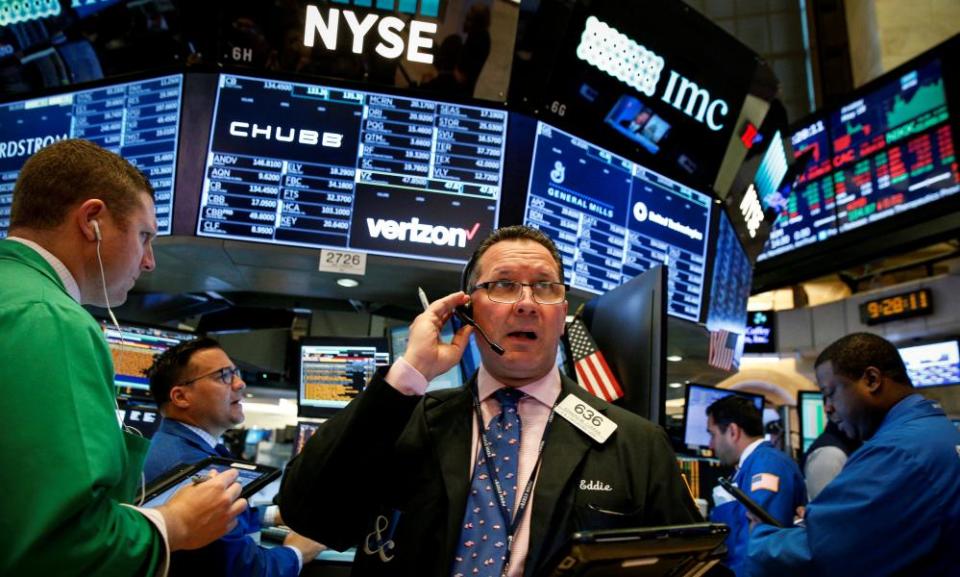US tech giants don’t just have your data – they are in your pension too

The population of the US, at 325 million, makes up just over 4% of the world’s total population. But its stock market, fuelled by the rise of Apple, Google, Amazon and Facebook, comprises 60% of the value of all shares traded on the planet. The Dow Jones index of Wall Street-traded companies stood at 16,000 in early 2016, but is about 25,000 now. And the Nasdaq index of tech shares has nearly doubled in just two years. Together, Apple, Google, Amazon and Facebook are now worth $3tn (£2.2tn). Meanwhile, closer to home, the FTSE 100 earlier this week hit a record high.
Is this a bubble? And is there anything the average person can do to protect themselves?
The answer to the first question must always be “don’t know”. None of us can predict equity movements and, if stock market history teaches us anything, it’s that bubbles go on for much longer and become much bigger long after the first naysayers warn about overvaluations.
The global technological domination of the US is so overwhelming that maybe some of those valuations are justified. Europe’s tech sector is a pipsqueak in comparison, China’s only exists behind protective walls and Japan’s is virtually non-existent.
My retirement security rests on US equity valuations and the future success of the big four tech giants
Whatever your views on tax-avoiding Amazon or data-harvesting Facebook, the likelihood is that you are invested in them and US shares in general. British pension funds, which used to be stuffed full of home-spun giants such as ICI or Midland Bank, are now hugely globalised. My own company pension, managed by Legal & General, has about 20% of its long-term fund invested in North American equities, compared with just 12% in UK ones. My retirement security rests on US equity valuations and the future success of the big four tech giants, whether I like it or not.
But as one manager of Japan shares at investment firm Baillie Gifford told me this week, the share prices of many US stocks have been inflated by companies taking out loans cheaply and using the cash to buy back their own shares, thus pushing the price up.
The FTSE’s rise should be much less of a concern. As Jason Hollands of financial firm Tilney points out, on most measures the prices of UK shares are a long way off the heady levels of the dotcom bubble and broadly in line with longer-term trends. “In a global context, UK equities look a relative bargain among developed markets,” he says.
Most people, particularly those some way from retirement, are probably best to go with the slings and arrows of stock market fortunes and stick with the asset allocation model supplied by their company. Individuals who try to time the peaks and troughs of markets invariably fail. That said, I tried this week to tilt my pension away from the US and put in a bit more elsewhere. But while I can put more into a UK fund, the only other option is to go into bonds instead. With interest rates likely to rise at some point, that doesn’t appeal. It’s disappointing that while only a few nerdy types such as me will ever actually do it, we have so few options to manage our pensions.
The reality is that I will remain heavily invested in the US tech giants. They don’t just own your data, they own your pension as well.

 Yahoo Finance
Yahoo Finance 